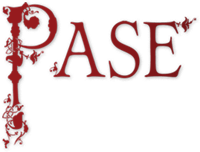Table of Contents
Top of page
Name
Summary
Distribution Map
Property List
Profile
Bibliography
Bottom of page
Wulfgyth 7
Wulfgyth ‘of Chenebvild’ (Wiltsshire), fl. 1066
Female
DWP
4 of 5
Summary
Wulfgyth 7 had a small estate in Wiltshire TRE assessed at 2½ hides and with a value of 20s.Distribution map of property and lordships associated with this name in DB
List of property and lordships associated with this name in DB
Holder 1066
| Shire | Phil. ref. | Vill | DB Spelling | Holder 1066 | Lord 1066 | Tenant-in-Chief 1086 | 1086 Subtenant | Fiscal Value | 1066 Value | 1086 Value | Conf. | Show on Map |
|---|---|---|---|---|---|---|---|---|---|---|---|---|
| Wiltshire | 25,19 | Chenebvild | Vluuid | Wulfgyth 'of Chenebuild' | - | Ernulf de Hesdin | Urse the man of Ermulf de Hesdin | 2.50 | 1.00 | 1.25 | C | Map |
| Totals | ||||||||||||
Profile
Wulfgyth 7 held a small estate in Wiltshire TRE but its location and even the hundred in which it lay are uncertain. Indeed, there is even debate as to the existence of Wulfgyth herself, with the DB form Vluuid being rendered as the unique nonce-form Wulfwith in the Alecto edition and being equated to the form Vluui (Wulfwig) of two other Wiltshire entries by the Phillimore edition. However, neither interpretation represents an improvement on that of von Feilitzen (1937: 419-20) in rendering the form as Wulfgyth.The name of Wulfgyth 7’s estate is given as Chenebvild in DB, an otherwise unrecorded form perhaps representing an Old English cyne ‘royal’ compounded with *bult ‘small hill’ or *bylte ‘hillock, rounded hill’ (cf. Parsons and Styles 2000: 66-7, 113). Its identification is obscured further by the absence of hundredal rubrics for the south-western shires in DB. The estate was held by Urse, a subtenant of Ernulf de Hesdin (Ernulf 1) in 1086; and one possibility is that Chenebvild lay near the other two estates that Urse held from Ernulf at Hill Deverill in Wiltshire and Melbury in Dorset (Jones 1865: 204; Pugh and Crittall 1955: 217). Another possibility is that there was scribal confusion with the OE preposition bī ‘by, near’ and that the form Chenebvild should be associated with the estates called Bichenehilde and Bechenehilde in DB and also held by subtenants of Ernulf in 1086. The derivation of these latter forms is also uncertain but the estates have been tentatively located near Beacon Hill in north Wiltshire (Jones 1865: 198; Gover et al. 1939: 268; Pugh and Crittall 1955: 197-8; Thorn and Thorn 1979: DB 25,12/18 Notes); this suggestion has been adopted here for mapping purposes.
Bibliography
Gover et al. 1939: J. E. B. Gover, A. Mawer and F. M. Stenton, The Place-Names of Wiltshire (Cambridge, 1939), p. 268.
Jones 1865: W. Jones, Domesday for Wiltshire (Bath, 1865)
Parsons and Styles 2000: D. N. Parson and T. Styles, The Vocabulary of English Place-Names (Brace-Cæster) (Nottingham, 2000)
Pugh and Crittall 1955: A History of Wiltshire: Volume II, ed. R. B. Pugh and E. Crittall (London, 1955)
Thorn and Thorn 1979: Domesday Book 6: Wiltshire, ed. C. Thorn and F. Thorn (Chichester, 1979)
von Feilitzen 1937: Olof von Feilitzen, The Pre-Conquest Personal Names of Domesday Book, Nomina Germanica 3 (Uppsala: Almqvist and Wiksells, 1937)
